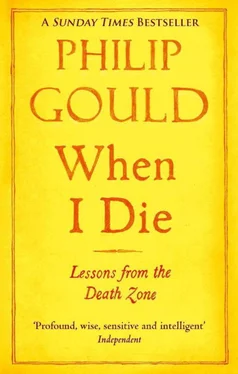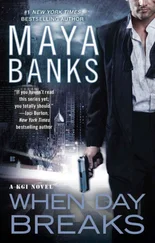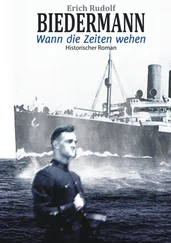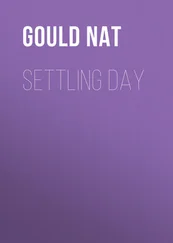Four Days Left to Change the World
Georgia Gould
Dad went into the Marsden for the last time on the Tuesday. He was not rushed in; it was his routine chemotherapy appointment.
We had been preparing for a long period of steady decline, of hospices, of slowing down and goodbyes. We had lived with cancer for so long that we were used to his periods of gauntness and sickness, used to seeing his body wasted and thin, his skin dry and peeling. These things were not necessarily signs of impending death but reactions to the treatment – the scars of cancer.
We knew, of course, his prognosis. His cancer was terminal. We were two months into the three that Professor Cunningham had predicted for him. Death had become something we lived with: making group tours of Highgate Cemetery, poring over funeral plans and strategising for posthumous publication. But, at least to me, death still always felt one step removed. Dad was always there, an active, engaged participant in the discussion – very much alive.
Even Dad, who relentlessly faced up to the truth of his condition, had moments when reality escaped him. I remember him saying that he had been sitting admiring his new shoes, thinking they looked smart enough for the funeral – before catching himself and remembering he would not actually be attending the funeral, at least not in a way that he need worry about shoes. He would joke that he had made such a fuss of dying that he needed a contingency plan if he did not die when he had predicted.
When someone is so full of life, humour, wisdom, so much themselves, it is easy not to see their body wasting away, easy to forget how stark the difference is between life and death. There is a big space between knowledge and acceptance.
Dad was determinedly trying to prepare my sister and me for his death. He knew better than us how highly we all had to value the time left. He invested everything he could in giving us the tools we would need for life, answering questions we did not even know we would have for him.
* * *
On the Thursday before he went into hospital he had organised a trip to Brookwood, the place where he grew up. This still stands out for me as a perfect day.
I had been up all night finishing a report. My sister, Grace, was stressed about her work. But Dad was insistent there would not be another chance for us to go together. And so we went. Dad had organised a car as Mum was not around and she is still the only member of the family who can drive. Dad was struggling with nausea and we had to stop and go back twice for more anti-sickness medication. But he took all the drugs he had and somehow he settled.
When we left it was the kind of beautiful, bright morning that we had no right to expect just as November was about to start. First, we went to visit his parents’ grave in Woking. I had been there with him many times before. He had always told us that his parents were an ever-present part of his life.
The cemetery was pristinely kept. The autumnal colours sparkled in the sun. The place had an almost magical feel, and painted a peaceful picture of death. Dad was able to pay there and then to extend his parents’ plot for the next twenty-five years and this seemed to take a weight off his mind – he had looked after them for one final time.
The ease with which we discussed Dad’s condition shocked the receptionist at the crematorium, I remember. I had once raised the idea of scattering our childhood cat’s ashes near Dad’s – the idea outraged my sister and amused Dad, so I quickly backtracked. Characteristically, he took the chance to wind us up, asking the receptionist whether they let people scatter their pets’ ashes in the garden. No, she said. ‘It’s just that I’m on my way out,’ he replied, ‘and my daughter wants to mix my ashes with those of her cat.’ She very coolly told us there was a waiting room round the back that we could sit in – the very clear subtext being, can I get this insane family away from me? I will never forget sitting in that funny little room, all three of us crying with laughter.
He kept repeating how happy he was. He said afterwards to me that he had a strong sense that day of how much energy and power we had and that he had felt confident that this was our time and that we would be all right without him. But I did not feel that then. I was just trying to ask all the questions I could, to drink in the time.
We drove along the street he grew up on and he told us about how he started the branch Labour party and recruited so few people his father had joined just to beef up the numbers. He told us about how he would knock on doors along these suburban streets and feel frustrated that these people’s hopes and aspirations were being ignored by the party he loved.
He told us about how he found a bigger world in literature and how something inside him had pushed him to leave Woking at the age of sixteen. He was anxious for us to see and understand every detail, that there should be nothing we did not understand.
He showed us the hills he used to struggle up doing his paper round and the construction site he had worked at during the summer holidays. He took us to the woods he used to walk through alone and the rivers he would fish and where he found peace in his own thoughts.
By now the weather had changed. It was pouring with rain by the time we got to Knaphill School, the primary where his dad had been the head teacher, but he insisted on getting out and showing us around, despite our warnings about what Mum would say.
He told us how his dad really cared about the ordinary kids who went there and fought to build them a swimming pool. He reminded us how he had himself struggled at school, how he had been so petrified at his eleven-plus he could hardly write and had ended up at the secondary modern.
We took many photos, printing memories as we went. We had lunch at a pub, where he managed a couple of spoonfuls of soup but insisted we all had three courses.
I can still see him there, beaming at us, happy in the moment.
That was Thursday. By the following Monday, his breathing had become a problem. Breathlessness was a new symptom for him so it had all of us worried, especially Mum. She always had a sense of when things were really bad. I think so much of his pain and his fear, so many of the demons, became apparent at night.
He had a routine chemotherapy appointment on Tuesday and Mum was so worried she covertly called the hospital, asking for Dad to have some tests as soon as he arrived. They were both stressed and tense that morning and I had a sense of foreboding that whole day.
I was in a meeting when I got a text from Mum at about four saying the doctors thought Dad had a ‘bit of pneumonia but was doing OK’. Having learnt with my parents always to add at least 20 per cent to any bad news, I jumped straight into a cab.
When I got to the hospital the atmosphere was tense. I could tell that both my parents were scared but were trying to be strong for each other. Dad was joking away as ever, getting me to massage his neck, interested in my day. It felt like the moment of calm before a storm, waiting for what was going to hit us.
And then very quickly the storm was upon us.
A doctor came in saying she was finishing up before her shift ended and had just come to give us the results of the scan Dad had undergone. He did have an infection, she said, it was on the lungs and was very far advanced. But they were trying to fight it.
There was something in the tone of her voice and the way she would not quite meet our eyes that betrayed the seriousness of the situation. I remember struggling to hold it together.
Dad asked very calmly: ‘Is this life-threatening?’
‘Yes.’
‘Could it be tonight?’
Читать дальше












